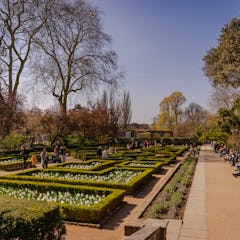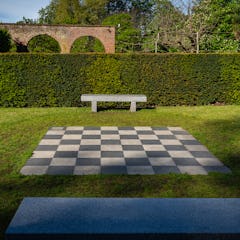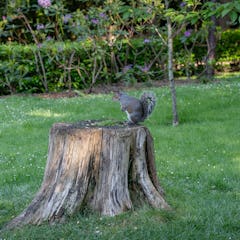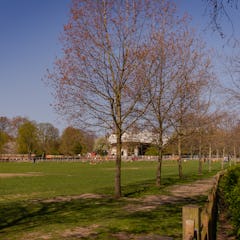Holland Park Location
The park covers 56 acres and blends formal gardens, semi-wild woodland, and various sports facilities. Until the 19th century, the area was largely rural. It has evolved into a sought-after residential neighbourhood while maintaining its natural beauty and cultural significance. It is located just north of Kensington High Street.
Historical Overview
Originally the grounds of Cope Castle, a grand Jacobean mansion built in the early 17th century by Sir Walter Cope. The house was inherited by his daughter, Isabel Cope, who married Henry Rich, the 1st Earl of Holland, giving the house and the park its name. During the 19th century, from 1860 to 1880, master builders William and Francis Radford developed the area, constructing over 200 elegant homes that attracted affluent residents. This transformed Holland Park into a fashionable residential district, with notable areas such as Royal Crescent, Aubrey House, the Phillimore Estate, and Campden Hill Square becoming prestigious addresses.
Holland Park’s Key Features
Holland House Ruins
Once a magnificent Jacobean mansion, Holland House was heavily damaged during World War II. Today, its ruins form the scenic backdrop for Opera Holland Park, an open-air opera company that performs each summer, blending art and history in a unique setting.
Opera Holland Park
Opera Holland Park is an open-air opera company that performs in the heart of Holland Park, using the historic ruins of Holland House as a backdrop. Since its founding in 1996, it has gained recognition for its productions of both popular and lesser-known operas, attracting audiences each summer
Dutch Garden
The Dutch Garden is a beautiful section of Holland Park with flower beds full of colour (when the tulips, dahlias and other flowers bloom), benches for visitors to enjoy their beauty, a central fountain surrounded by plants and trees, and gorgeous red-brick walls and buildings surrounding the area and providing shelter from the winds.
Kyoto Garden
Established in 1991 as a gift from Kyoto, Japan, this traditional Japanese garden features a serene waterfall, koi ponds, and stone lanterns. It provides a tranquil space for visitors and a cultural contrast to the surrounding English landscape. It’s a unique and popular space in London; sometimes, you’ll have to queue to walk the path around the garden. In the early morning, you might find people doing yoga or meditation there.
Fukushima Memorial Garden
Built in 2012 to honour the victims of the 2011 Fukushima disaster, this garden also symbolises the friendship between Japan and the UK. It incorporates traditional Japanese design elements such as rocks and water features, creating a space for reflection.
Holland Park Ecology Centre
Dedicated to environmental education, the centre offers workshops, nature walks, and other programs for both children and adults, fostering awareness of biodiversity and sustainability within the park.
Activities
Holland Park also offers a range of recreational activities, including a cricket pitch and tennis courts, catering to both sports enthusiasts and casual visitors. You’ll often find people playing football or tennis there. The paths around the park are great for walking, and there are many relaxing spots for yoga or similar activities. The park is relatively small and easy to walk around.
Wildlife
Holland Park is home to various bird species. One of the park's most famous features is its roaming peacocks. These colourful birds add an exotic touch to the gardens and are a favourite among visitors for their displays of vibrant feathers. There are also grey herons, ravens, magpies and other bird species. As in many London parks, many squirrels like to get close in search of treats.
Summary
Holland Park is more than just a green space; it is a hub of cultural and historical significance in London. From the ruins of Holland House to the tranquil Kyoto and Fukushima Memorial Gardens and the lively presence of peacocks, the park offers many types of experiences for visitors. Its blend of nature, history, and culture makes it one of London’s most distinctive parks.


















